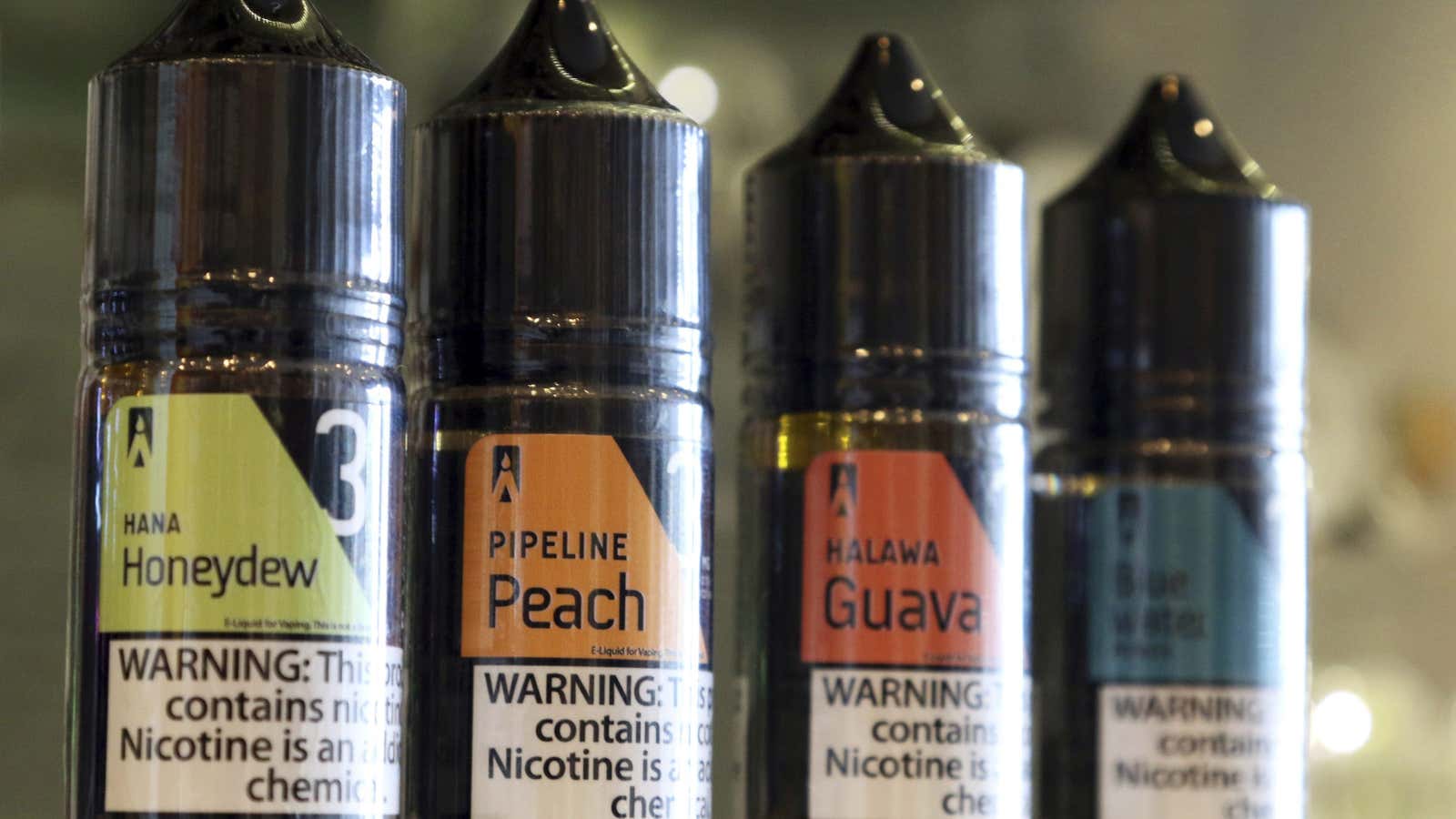Today Alex Azar II, the head of the US Department of Health and Human Services, announced that the US Food and Drug Administration (FDA) was finalizing plans to ban all flavored e-cigarettes from the market.
The move stems from concern of the appeal of flavored e-cigarettes to minors. Last year, more than 3.6 million middle- and high-school students in the US reported using an e-cigarette in the past month—more than double the number from the previous year. “We will not stand idly by as these products become an on-ramp to combustible cigarettes or nicotine addiction for a generation of youth,” Azar said in a statement. In addition to concerns about nicotine addiction, which may permanently alter teenage brains, health authorities are worried that teens who vape tobacco products will later move on to smoking actual cigarettes or using other drugs.
Banning flavored e-cigarettes would likely put a dent in youth vaping, which is popular in part because of the variety of flavors available. As Quartz reported earlier this week, by some estimates more than 80% of teens who vape use flavored cartridges. Three-quarters of those same teens said they’d quit if cartridges removed the flavoring.
What’s not clear, though, is if a flavor ban would limit any more of the vape-related illnesses that have appeared in reports this past summer. At the time of writing, there have been at least 450 cases of an acute lung illness that causes people to experience severe chest pain and shortness of breath and has put roughly a third of all patients on ventilators. At least six people across Illinois, Kansas, California, Indiana, Minnesota, and Oregon have died.
While flavored cartridges—especially sweet ones—have been found to contain chemicals of questionable safety, they’re not necessarily the culprit behind these illnesses. Last week, the FDA reported finding vitamin E acetate, an oil, in some of the vapes from sickened patients. However, the majority of these patients were smoking cannabis products, which are not regulated by the FDA and therefore not affected by any flavor ban. Additionally, vitamin E acetate wasn’t found in all of the products patients had been smoking, which suggests that there could be multiple contaminants at work, or several working together.
The FDA’s ban won’t affect any e-cigarettes that are tobacco flavored, which should allow adults who are using such products to quit smoking to continue to do so. Azar said that allowing tobacco-flavored products on the market is contingent on the fact that teenagers won’t have the same affinity for them that they do for sweet flavors. “If we see kids start flowing into tobacco-flavored e-cigarettes, we’re coming after that, too,” he said.
It will likely take several weeks for the FDA’s ban to be in full effect. The news of this ban falls just two days after the FDA issued a separate warning to Juul, which sells the lion’s share of e-cigarettes, for marketing their product as safer than cigarettes without authorization, including to children.
